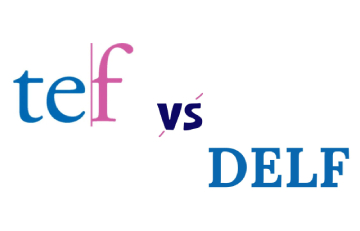
When you study or work remotely, you often want to leave some things for later. It seems that you can start later and then try to do everything at once. About 20% of people are engaged in procrastination – put off work, study, tasks for an indefinite period of time and experience internal discomfort. In this article, we will look at how to effectively cope with the challenges of online learning and master the art of time management to maximize productivity while staying in the comfort of your home.
Organizing the learning process: Key steps
Create a study space
Allocate a dedicated study space that will be associated with concentration and focus. Pay attention to the ergonomics of the workplace to make it comfortable.
Eliminate distractions
Turn off notifications on your phone and computer, limit your time on social media and other distracting apps.
Stick to your usual daily routine
Maintaining a regular daily schedule, including sleep, exercise, meals, hobbies, and socializing, contributes to stability and enhances productivity.
Plan and manage your time
Plan activities in advance, clearly allocating time for work, study and leisure. This will help avoid the temptation to put tasks off until later.
Monitor assignments and syllabi
Daily review of assignment lists from professors and reading the literature on the syllabus will help you avoid piling up a large amount of material.
Maintain deadlines
Set yourself deadlines, if not assigned, to maintain rhythm and efficiency in the learning process.
Motivate yourself
Reward yourself for work completed. This can be something small and nice you can do for yourself after completing a lesson or homework assignment.
Find support
Telling your goals and plans to someone else can help you stay on track and fulfill your commitments.
Adhere to a healthy lifestyle
Regular exercise, proper nutrition and sleep have a positive impact on your ability to concentrate and learn.
Methods for combating procrastination
“Pomodoro Technique”
This is a time management technique developed by Francesco Cirillo. The essence of the method is to divide working time into intervals, usually 25 minutes (called “tomatoes”), followed by a short break of 5 minutes. After four tomatoes, a longer break of 15-30 minutes is recommended.
“Eat the Frog”
The method is proposed by the author Brian Tracy and encourages you to decisively start the most difficult and important task from the very beginning of the work/study day. The idea is to overcome the temptation to put off difficult tasks and get right down to the most important work.
“Tick Things Off”
This involves systematically creating weekly, monthly or semester plans and then ticking off tasks that have been completed. This method helps to improve time management and efficiency by allowing you to periodically evaluate your achievements, analyze your time use and optimize your work processes.
SWOT
A strategic analysis technique that assesses strengths, weaknesses, opportunities and threats to development. To create a SWOT matrix, you can use a simple table with four quadrants representing S – Strengths, W – Weaknesses, O – Opportunities and T – Threats. Next, identify the most significant or priority elements in each quadrant and analyze them. Analysis promotes a more informed and effective approach to one’s education, helping the student to better capitalize on strengths, overcome challenges, and ultimately develop more successful strategies for learning and personal growth.
SMART
It is a system of goal formulation where each goal should be:
- S – Specific: Specific and clear (What outcome do you expect?);
- M – Measurable: Measurable so that progress and achievement of the goal can be assessed (By what criterion will you know you have achieved the goal?);
- A – Achievable: Achievable, realistic and feasible (Is it really possible to achieve your goal?);
- R – Relevant: Related to overall strategic goals and context (Does the goal fit with your overall plans? Why achieve it?);
- T – Time-Bound: Limited in time, with a clearly defined deadline (When do you plan to achieve it?).
FEYNMAN
A method of learning and memorization invented by physicist Richard Feynman. The essence of the method is to explain a concept or topic as if you were explaining it to a friend, using simple language and concrete examples. The process involves four steps:
- Explain to yourself what you know, but in simple words;
- Evaluate your explanation;
- Fill in the gaps in your knowledge that you see;
- Simplify your explanation and explain it again.
“Golden Circle”
A management and leadership method developed by Simon Sinek that emphasizes the importance of a deep understanding of meaning and purpose for long-term success. Includes three levels of questions:
- Why?: Identifying the purpose or reason for inspiring action.
- How?: Developing a strategy or methods for accomplishing a goal.
- What?: The specific actions and products that implement the strategy.
Method of the “5 Minute Start”
This is an approach to overcoming procrastination where you commit to working on a task for just 5 minutes. The goal is to get started, even if you don’t feel inspired. Often, after the first 5 minutes, the resistance diminishes and you begin to be engaged in the task. This method helps you overcome procrastination and get the work started, even if it initially feels difficult to get started.
Tools for effective self-education
Forest (forestapp.cc): This app helps you focus on your studies by growing virtual trees that are “planted” for a certain period of time. If you leave the app, the tree dies. It inspires concentration.
Focus Booster: A time management application based on the principles of the “tomato” methodology. The app suggests setting a timer for a certain time to work (usually 25 minutes) followed by a short break (5 minutes).
Engross: A productivity management app that includes timers for work and breaks, time tracking, ability to create tasks, to-do lists and notes.
Todoist (todoist.com): A popular task management app. It allows you to create task lists, prioritize, set deadlines and share lists with others.
Trello (trello.com): A handy project management application. You can create different boards with task cards that can be moved between different columns.
StayFocusd: A Chrome browser extension that helps you manage the time you spend on individual websites. It allows you to limit the time spent on distracting sites.
RescueTime (rescuetime.com): This app tracks your time spent on various apps and websites, helping you understand how you use your time and helping you identify distractions.
Focus@Will (focusatwill.com): A music app designed to increase productivity. They claim that their music helps improve concentration and focus.
Habitica (habitica.com): A game app that transforms your life into a role-playing game. You set goals, create tasks, and receive in-game rewards for completing them.
Coach.me (coach.me): An app that provides plans, tips, and support to achieve your goals, whether it’s health, productivity, or personal development.
Tandem: A language exchange app that connects people from different countries who want to learn languages.
Duolingo (duolingo.com): An app and platform that helps in learning foreign languages through interactive exercises and a game-based approach.
Udemy: An online course platform that provides a wide range of learning materials on a variety of topics, including foreign languages.
Coursera (coursera.org): A platform with many courses from universities in various subjects.
Khan Academy (khanacademy.org): A resource that provides educational materials on a variety of subjects from school level to higher education.
Overall, successful distance learning requires not only active participation and self-discipline, but also the ability to manage your time effectively, overcome procrastination, and take care of yourself. Following the steps and techniques listed above, as well as using the right tools, can greatly improve the quality of online learning and help you achieve your goals.
Want to improve your English and expand your learning horizons? Try eTalk, an innovative online language learning platform. Our interactive lessons, personalized tutors and engaging courses will help you achieve language harmony. Start your learning adventure with eTalk now!













